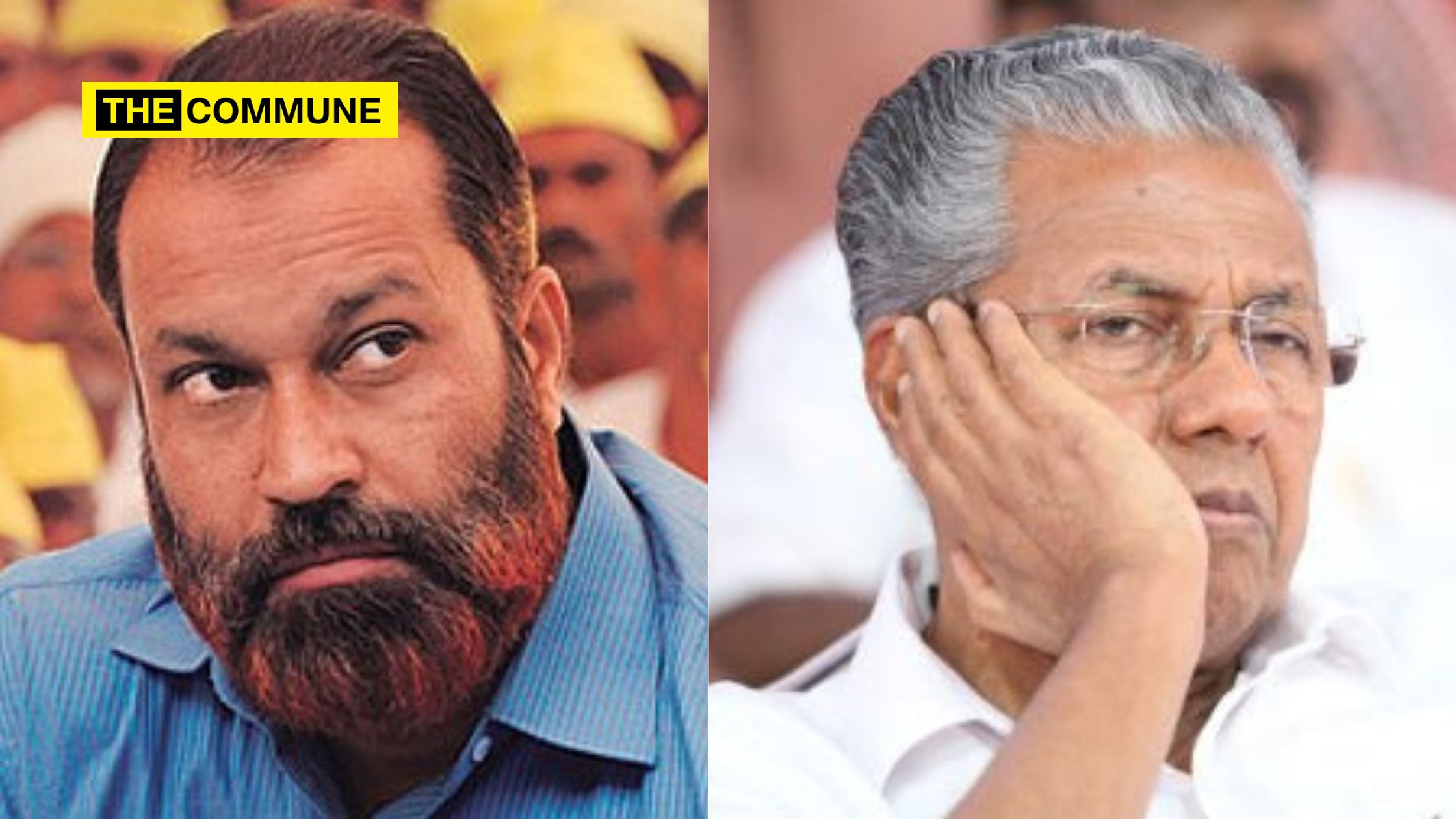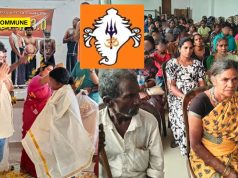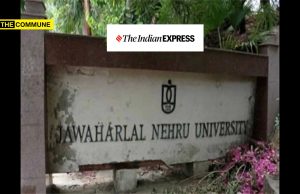
C A M Basheer, one of the most searched-for terror operators in the country and one of the first extremist leaders of the proscribed Islamic Movement of India (SIMI), was recently caught by airport police just before his flight out of Canada. Chaneparambil Mohammad Basheer, aka CAM Basheer, was apprehended in Canada after being wanted in the 2002-03 Mumbai explosions conspiracy case. Senior police sources in Mumbai claimed attempts are being made for the extradition of Basheer, who is wanted for his suspected participation in the 2002-03 Mumbai explosions, which killed 12 people. Interpol charged him with murder, attempted murder, conspiracy, destroying public property with explosives, possessing forbidden weapons, and performing a terrorist act. One of the group’s early leaders is now one of the country’s most sought terrorists. He is said to be influencing the terrorists within India from outside. Considering these incidents, we will investigate CAM Basheer, Kerala’s face of Islamic extremism, and why it is important in avoiding further radicalization in the state.
Who Is CAM Basheer?
Basheer, the youngest child of the deceased Chaneparambil Abdulkhadar and Beeyathu, was born in 1961 and climbed to SIMI’s position of leadership from Aluva, an area near the village of Kaprassery, where the organisation had a significant foothold before its prohibition in 2001. He rose through the ranks of SIMI until he became the all-India head in the latter part of the 1980s. At the time, extreme forces within SIMI were gaining power, causing its parent organisation, the Jamaat-e-Islami Hind (JIH), to gradually distance itself from the organisation. Basheer was reported to be a major figure in SIMI’s radical stream. The Afghan-Soviet conflict of the early 1980s encouraged many SIMI members to promote the notion of armed jihad. While Basheer’s latest imprisonment in Canada is related to his suspected participation in the 2002-03 serial bombing cases, he has had multiple prior run-ins with the government.
A Career Terrorist
Basheer reportedly brainwashed Muslim teenagers as the leader of SIMI during the 1980s. According to court records from the 2002-03 explosions trial, Basheer made a controversial speech about crimes against Kashmiri Muslims in 1991 during a SIMI conference held at Bandra Reclamation. According to law enforcement records, the gathering was attended by several radicals from Bangladesh, Iran, and Palestine. In mid-1992, he went underground and departed the country. Former companions of Basheer claim that in the mid-1980s, Basheer travelled to Pakistan with a few extremist SIMI members and was trained in the North West Frontier region, which borders Afghanistan. Some members of the gang are also said to have travelled into Afghanistan and met with persons including Abdul Rasul Sayyaf, the Afghan terrorist widely rumoured to have welcomed Osama Bin Laden to Afghanistan. According to court documents, Basheer was urged by the Inter-Services Intelligence (ISI) to transfer additional recruits to Pakistan, but his former companions claim he was unable to persuade too many to do so. Basheer was recognised by the Indian government as a member of the ISI’s K2, an ambitious scheme to develop a uniform nationwide network supporting Khalistani and Kashmiri radicals across the nation. Basheer was allegedly tasked with finding safehouses wherein these violent extremists might conceal and store weapon stockpiles transported through the Gujarat border. In mid-1992, two individuals were detained for reportedly protecting Khalistani terrorists: Saquib Nachan, a close acquaintance of Basheer, and Lal Singh, a Khalistani terrorist. A TADA court in Gujarat eventually condemned them to life in jail. Basheer was identified in the proceedings as an absconder. Basheer’s name appeared on a list of India’s 50 most wanted offenders who were believed to be sheltering in Pakistan in 2011. Basheer, now 62, has kept a low profile over the previous decade while remaining on the intelligence scanner. Security officials assumed he was acting from West Asia and funding SIMI and Indian Mujahideen terror activities. Basheer was supposedly in charge of numerous other extremist individuals, notably Sarfaraz Nawaz, a SIMI leader from Kerala accused of involvement in multiple terror incidents. Nawaz was arrested in Oman in 2009 and extradited to India on suspicion of participation in the 2008 Bengaluru bombing. The 2002-2003 Mumbai bombings case, for which Basheer received an RCN warning, was a series of explosions that occurred between 2002 and 2003. The bombings resulted in the arrest of 16 people, with Basheer being one of the five fugitives in the case. An explosion occurred in the main lobby section of Mumbai Central train station in 2002. In 2003, another bomb occurred in a marketplace in the western part of Vile Parle. The third explosion occurred on 13 March 2003, in a local railway cabin in Mulund. These explosions claimed the lives of twelve people. Police used the Prevention of Terrorism Act (POTA) to arrest 13 people. Bashir was designated as a ‘wanted suspect,’ with authorities alleging that his involvement was to supply finance for the scheme.
A Gentle Reminder To Pinarayi Government
We can all hope that the arrest of CAM Basheer, one of the faces of Islamic radicalism in Kerala will stroke a debate in the state which will provoke the state government into action. But this scenario is unlikely due to the appeasement nature of the Pinarayi Vijayan government.
Kerala is a state afflicted by extreme Islamic impulses, and it is becoming an Islamist haven. The government CPI(M)’s minority appeasement tactics and strategy have also exacerbated the problem. The CPI(M)’s appeasement tactics may be traced back to the period when the present CM was in office. For many years, the CPI(M) has been accused of shutting its eyes or even discreetly backing the extreme actions of the PFI (Successor of SIMI) and its linked organisations. The CPI(M) lacks meaningful ground support from Islamic parties in Kerala and lacks allies to march into a significant Islamic voting base in Kerala. Because of these extreme forces, Kerala is on the verge of collapse. In recent years, many men and women from Kerala are said to have joined the ISKP (Islamic State of Khorasan Province). In its 2020 terrorism assessment, the United Nations warned that there was a significant number of ISIS terrorists in the Indian states of Kerala and Karnataka. The ISIL Indian branch (Hind Wilayah), which was declared on May 10, 2019, has between 180 and 200 members, with significant ISIL operators in Kerala and Karnataka, according to the source. The threat of extremism and terrorism is one of the world’s biggest issues today, posing a significant risk to the stability and peace of our society. Terrorism, whether in the form of violence or love, surely creates significant issues in our society. For the sake of India’s national security, it is past time for the Kerala government to take the problem seriously, without being misled by vote banks or appeasement, and to take severe action against fringe groups on the ground.
Click here to subscribe to The Commune on Telegram and get the best stories of the day delivered to you personally.




